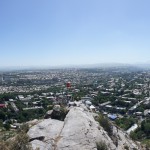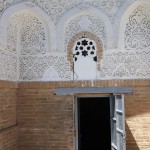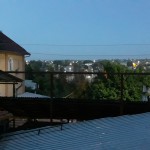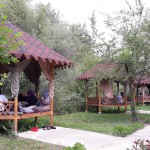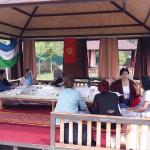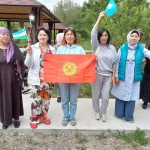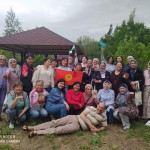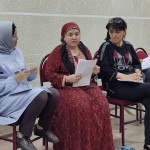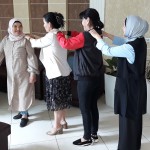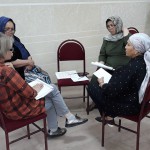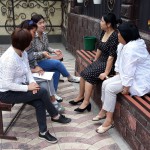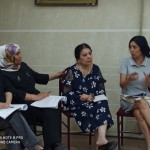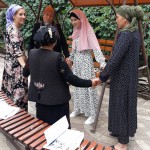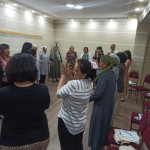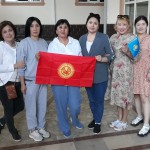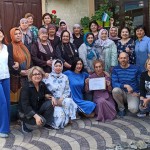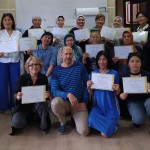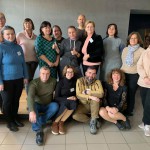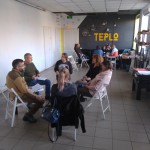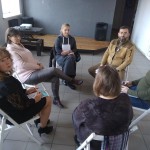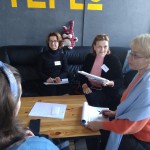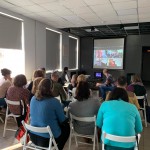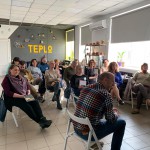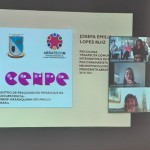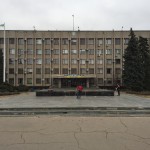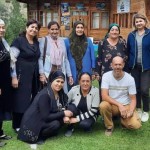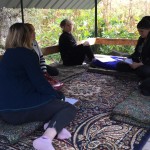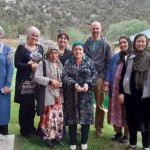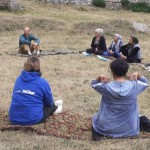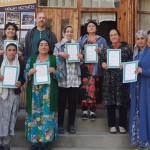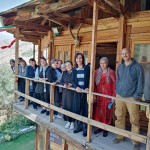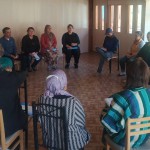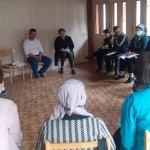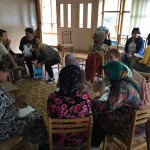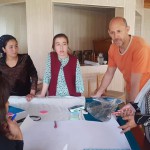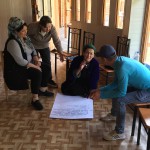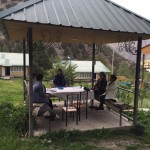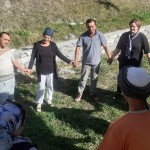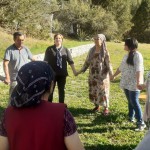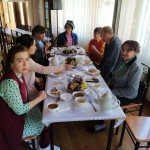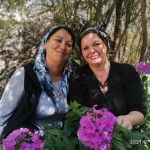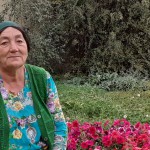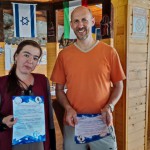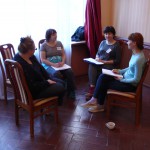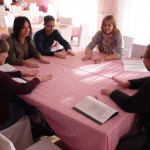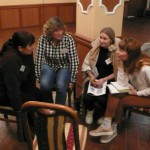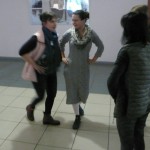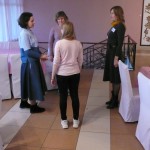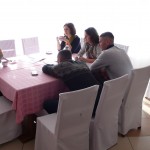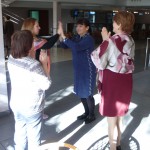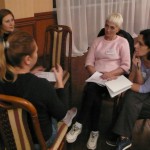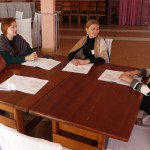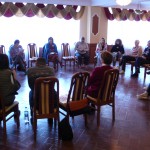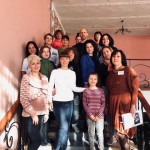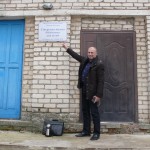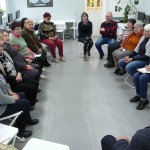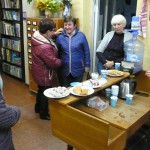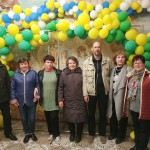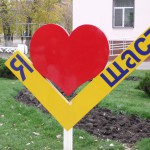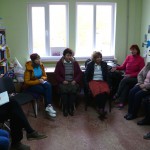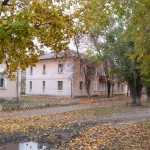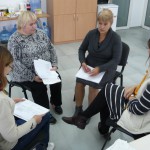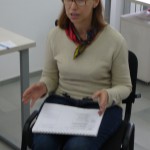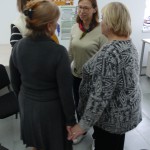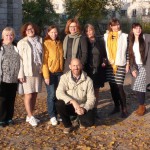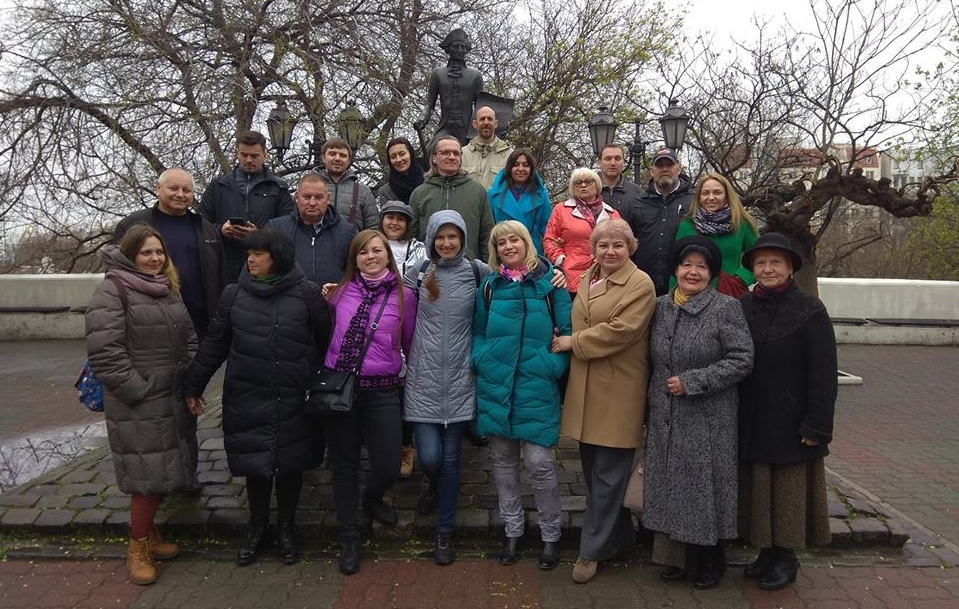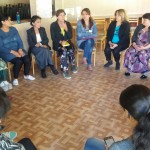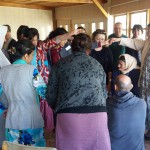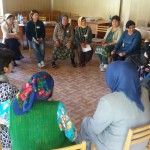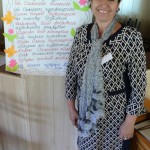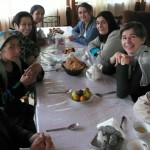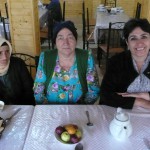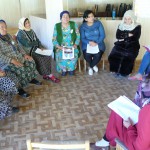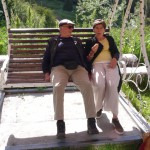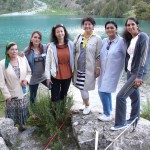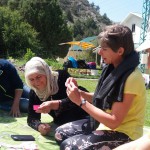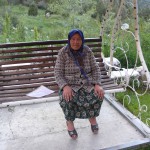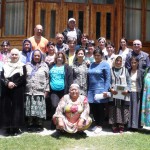From 8 to 13 May, 2022, the third round of training for moderators of Integrative Community Therapy (ICT) in Central Asia took place in Osh, Kyrgyzstan. Organizational partner of the event was Info Centre Rainbow. 27 civil society representatives from five different nationalities in Kyrgyzstan, Kazakhstan and Uzbekistan took part.
All posts by Simon Greuter
TRE – Tension and Trauma Release Exercises
Trainer: Peter Brandenburg, Body psycho therapist in Bad Säckingen, Germany
Date: Wednesdaz, 18 May 2022, 18:00 CET (19:00 EET)
Location: https://meet.google.com/fcg-vvvm-psh
Who: Women and men affected by the war in Ukraine
Language: German, with translation into Russian by Anna Shanaeva
Requirements: Device with camera and stable internet connections. PLEASE, READ THE ONLINE INSTRUCTIONS FOR EFFECTIVE TRAINING PARTICIPATION: Teaching TRE_ Online – camera positioning !!!
Further information in English:
- https://www.youtube.com/watch?v=FeUioDuJjFI&t=4s (introduction video)
- https://traumaprevention.com/ (global website TRE)
Аuf Deutsch: Artikel Neurogenes Zittern , Berceli Interview_de
На русском: Interview Berceli_ru
Ukraine: Supervision of ICT moderators
From 28 to 31 October 2021, a 4-day supervision meeting for ICT moderators from all over Ukraine took place in Slaviansk. Here are some impressions:
Central Asia: Supervision and training of ICT moderators
In the end of August/beginning of September 2021, in Artuch, Penjikent, Tajikistan, a 3-day supervision and a 5-day basic training for existing and new moderators of Integrative Community Therapy (ICT) took place. Women and men from civil society organizations in Tajikistan, Usbekistan and Kyrgyzstan took part and shared their sufferings and useful life experiences.
Integrative Community Therapy
Integrative Community Therapy (ICT) is a social technique for dialogue and the conduction of self-help groups. Its wisdom lies in the sharing of helpful life experiences among participants as a resource for coping with difficult life situations. Four simple rules and a few principles guide the process, which usually consists of two parts. During the first part, which lasts around 90 minutes, there is neither discussion nor advice, but respectful listening to the other’s suffering and its acceptance without judgement. There is no need to find consensus or to agree on anything, and the group is not looking for solutions of someone’s problems. But everyone can take home whatever useful strategy comes up during the exchange.
ICT was developed by Brazilian psychiatrist, anthropologist and theologian Prof. Dr. Adalberto Barreto over a period of more than 30 years. It is scientifically proven that it has a preventive effect on physical and mental health, wellbeing and social cohesion. Today, in Brasil, it is part of the public health system with around 40’000 moderators trained. Currently, there are ICT groups in 28 countries on three continents.
“Nobody is so rich that he wouldn’t need anything, and nobody is so poor that he couldn’t give anything.”
Adalberto Barreto
The goals of ICT include strengthening of personal autonomy, horizontal communication, social inclusion and respect for diversity. Sessions are conducted regularly, and participation is always free of charge. In continuous sessions, an atmosphere of confidence and compassion is created, in which participants experience on multiple sensory levels that they are not alone with their worries and that there are different ways of acting and being. The underlying idea is that pain and suffering often contain hidden „pearls“ and the potential of a higher future self.
During each ICT session, one topic is chosen for further elaboration among the topics brought up by participants themselves. The clear structure provides a space of confidence and proximity in which a feeling of connectedness and self-impact can emerge. Participants are free to either participate actively or just attend as silent witnesses – both has its value. ICT can be applied to open or closed groups in various contexts including community centres, schools, prisons, and with various target groups including general public, youth, parents of children with disability, elderly etc.
“Who only looks at the finger, does not see the star to which it points.”
Adalberto Barreto

More information:
Training of ICT moderators in Donetsk region
From 28 to 31 October 2019, the fifth round of basic training for moderators in Integrative Community Therapy (ICT) took place in Svjatogorsk, Ukraine. During the four days of the training, 12 participants from Donetsk and 10 from other regions of Ukraine shared their suffering, helpful life experiences, songs, poems, and wisdom. Participants appreciated the clarity of the ICT method and the quality and depth it creates, allowing for personal growth. Some participants started their own groups on the very next days right after the training!
Supervision of ICT moderators in Luhansk region
From 25 to 27 October 2019, a three-day supervision training for ICT moderators from Luhansk region took place in Severodonetsk, Ukraine. The supervision did not only allow for finetuning moderation skills but also provided a space for personal trauma healing of participants. Prior to the supervison workshop, individual ICT groups were conducted in Severski and Scastje – two small towns in war plagued East Ukraine. Here are some impressions from the groups and the workshop:
Training of ICT moderators for Caritas Ukraine
From 5 – 9 and 12 – 16 August 2019, two training courses in Integrative Community Therapy for 32 participants from all over Ukraine have taken place near Kyiv. Here you can download the full Caritas Ukraine ICT training report.
Training for moderators in Integrative Community Therapy, Odessa/Ukraine
From 12 – 16 April, agens conducted a training for 21 moderators of Integrative Community Therapy in Odessa region, Ukraine. The training was orgainzed in parthership with Caritas Odessa, Forum ZFD and Odessians together. Caritas Switzerland supported the mission financially. You can download the mission report here.
